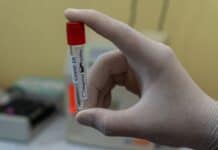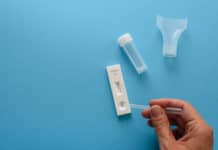 COVID-19 has impacted meetings, incentives, and travel in general hard. Most are still quarantining, and those who have ventured out are being extra cautious. Social distancing, mandatory face masks, and hand sanitizer are now de rigueur. Some hotels have introduced “zero contact” service, including the use of robots for room service and other deliveries. Other robots help clean rooms with an added layer of protection during this perilous time using ultraviolet light.
COVID-19 has impacted meetings, incentives, and travel in general hard. Most are still quarantining, and those who have ventured out are being extra cautious. Social distancing, mandatory face masks, and hand sanitizer are now de rigueur. Some hotels have introduced “zero contact” service, including the use of robots for room service and other deliveries. Other robots help clean rooms with an added layer of protection during this perilous time using ultraviolet light.
Once a high-tech gimmick that got guests talking and posting, robots are now helping guests stay safe.
The Waldorf Astoria Beverly Hills and The Beverly Hilton use the Xenex LightStrike Robots to help with new and upgraded cleaning protocols. They use ultraviolet light to zap germs once the housekeeper has finished the standard cleaning.
Robot-based room service has taken root as well. When guests order beverages, meals, or room supplies, robots attendants will bring them to the rooms.
At the 211-room Novotel Ambassador Seoul Dongdaemun Hotel in South Korea, “N Bot,” a hotel robot co-developed by KT and Hyundai Robotics, will deliver room service orders or extra towels. The robot receives an order through a voice or touch command from the guest in a room using the Giga Genie AI system, and it then brings the ordered items to the guest by taking the elevator by itself. N Bot is powered by 3D spatial mapping technology and autonomous driving technology. N Bot, linked to AI Giga Genie, can provide information in four different languages (Korean, English, Chinese, and Japanese).
“As people increasingly prefer zero-contact service due to the pandemic, the second-generation Giga Genie hotel robot will command a high praise as an exemplary zero-contact service using AI technology,” said Kim Chae-hee, leader of KT AI/BigData Business Unit.
It is not just hotels that are turning to futuristic machines to keep guests safe. Several airports are employing such services as well. Take Pittsburgh International Airport that is using autonomous robots to disinfect its terminals. Or Hong Kong International Airport (HKIA) that has deployed autonomous cleaning robots to disinfect public areas, passenger facilities, and restrooms continuously. Called Intelligent Sterilization Robots, they are equipped with ultraviolet light sterilizers and air sterilizers and move around autonomously. They sterilize up to 99.99% of bacteria in its vicinity in just 10 minutes.
DON’T MISS THESE RELATED ARTICLES
Robots Will Impact Your Meetings










